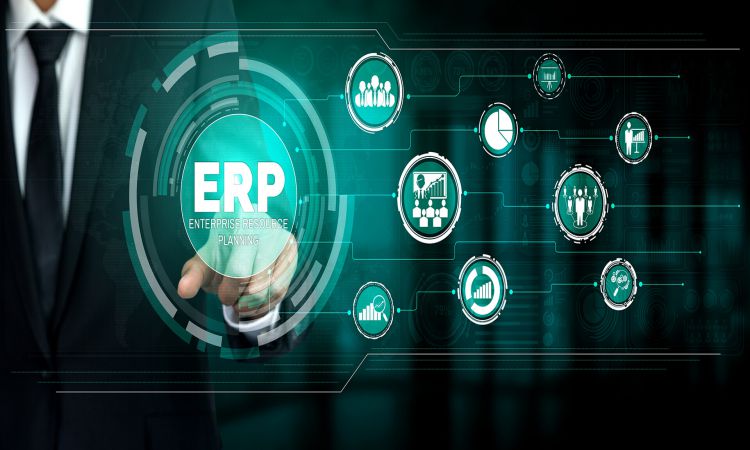 Benefits of an ERP System
Benefits of an ERP System
ERP (Enterprise Resource Planning) systems are a powerful tool for businesses of all sizes. They provide an integrated suite of software applications that allow businesses to effectively manage their operations, from finance and accounting to human resources, manufacturing, inventory control, customer service, and more. ERP systems can help streamline business operations by consolidating data from multiple sources into one centralized platform. This article will explore the many benefits of implementing an ERP system in your organization.
1. Improved Efficiency:
An ERP system in Singapore helps automate manual tasks and processes that would otherwise need to be done manually or with external software solutions. By consolidating data into a single platform, users have access to real-time information which makes it easier to make informed decisions quickly and accurately. This eliminates time wasted searching for data across various departments or locations and improves overall efficiency throughout the organization.
2. Enhanced Collaboration:
An ERP system allows multiple stakeholders within an organization to collaborate on projects more easily by providing access to up-to-date information on tasks progress as well as relevant documents such as reports or invoices in a centralized location accessible from any device at any time—allowing teams to spread across different departments or locations work together seamlessly without having physical meetings.
Functional Areas of an ERP System
An Enterprise Resource Planning (ERP) system is a powerful software tool used by businesses to facilitate their operations. ERP systems are designed to integrate and manage all of an organization’s core functions, such as accounting, human resources, production, sales, and marketing. By combining multiple processes into a single platform, ERP systems offer businesses greater efficiency in managing tasks and resources.
There are several key functional areas within an ERP system that provide the foundation for success. Here we look at the four most important functional areas of an ERP system:
1. Financial Management:
Financial management is one of the most important functional areas within any ERP system. It enables organizations to track financial data such as accounts receivable and payable, budgeting and forecasting activities, taxes paid or due and more. The ability to effectively manage finances is essential for any business looking to maximize its profitability while staying compliant with applicable laws and regulations.
 2. Human Resources Management:
2. Human Resources Management:
Another key area within an ERP system is human resources (HR) management which helps organizations streamline HR-related processes such as employee recruitment, training programs, or payroll processing while also providing insight into the performance of personnel on a granular level via analytics or metrics reports.
Components of an ERP System
An Enterprise Resource Planning (ERP) system is an integrated software suite that helps organizations manage their day-to-day business activities. The ERP system is composed of a number of components, each designed to streamline and automate the specific processes within an organization. By centralizing data and processes, the ERP system ensures consistency and accuracy in operations, enabling businesses to reduce costs and improve productivity.
The core components of an ERP system include financials, inventory management, customer relationship management (CRM), business intelligence/analytics, human resources (HR), manufacturing process control, supply chain management (SCM), project management, and e-commerce. Each component works together to provide a unified view of the entire organization’s data and operations from one central location.
Financials:
The financial component of the ERP System allows businesses to manage their finances more efficiently by automating accounting functions such as accounts payable/receivable processing, budgeting & forecasting tools, and audit trails for tracking transactions. This component also provides access to real-time financial reports which can be used by managers for decision-making purposes such as cost-cutting measures or developing strategies for growth.
Different Types of ERP Systems
Enterprise Resource Planning (ERP) systems are computer-based solutions used by organizations to manage and integrate their business processes. They provide businesses with an end-to-end, enterprise-wide view of their operations and provide the ability to standardize data and information across the organization. ERP systems automate, streamline, and centralize the management of data within an organization.
There are three main types of ERP systems – On-Premise ERP Systems, Cloud ERP Systems, and Hybrid ERPs.
On-Premise ERP Systems:
This type of system is installed on an organization’s local server or physical hardware. All processing occurs on the in-house system which gives users full control over software updates, security protocols, deployment options as well as the total cost of ownership (TCO). While this is beneficial for companies that have a large IT team to manage the system in-house it can be costly for smaller businesses due to licensing fees and maintenance costs associated with servers.
Cloud ERP Systems:
Cloud technology has become increasingly popular among businesses due to its flexibility; cloud-based solutions allow users access from anywhere at any time provided they have internet access.
Conclusion
ERP systems are an invaluable tool for modern businesses. By streamlining operations and providing real-time access to data, they can help companies to reduce costs, improve efficiency and increase customer satisfaction. Furthermore, the scalability of ERP systems makes them suitable for businesses of any size.






